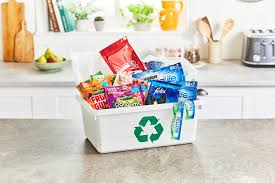Plastic recycling has grown to be increasingly important because the planet grapples with enviromentally friendly challenges. Comprehending the fundamentals of plastic recycling is essential for everyone. Here’s all you should know:
Plastics Category: Plastics are broadly categorized into seven kinds according to their compound composition and recycling qualities. These are classified as resin detection regulations (RIC) and so are represented by phone numbers inside of the recycling sign. Each kind have their distinctive attributes and recycling needs.
Recycling Method: Plastic recycling typically entails numerous steps. Assortment: Plastics are gathered from various places, including families, businesses, and industries. Selecting: Once collected, plastics are sorted depending on their resin type to enhance the recycling method. Washing: Plastics are cleaned to remove impurities for example debris and tags. Shredding: The cleansed plastics are shredded into small items to assist in more processing. Melting: The shredded plastic is melted down and established into pellets or flakes. These may be used to make new plastic merchandise.
Problems: Regardless of its value, plastic recycling encounters numerous obstacles. Contaminants: Toxic contamination from non-recyclable materials can restrict the recycling method and lower the grade of recycled plastics. Minimal Facilities: Inadequate recycling infrastructure in numerous territories causes it to be tough to acquire, organize, and recycle plastics effectively. Monetary Viability: Recycling some types of plastics may not be economically feasible as a result of reduced market need or higher digesting expenses.
Advantages: Even with difficulties, plastic recycling provides several advantages. Environment Preservation: Recycling plastics conserves normal resources and decreases the requirement for virgin plastic production, thereby lessening enviromentally friendly influence. Electricity Financial savings: Recycling plastics uses less power when compared with making new plastics from natural resources. Task Development: The recycling sector produces occupations in series, working, handling, and producing.
Conclusion: plastic recycling is a vital aspect of eco friendly squander managing. By comprehending the fundamentals of plastic recycling and assisting recycling endeavours, people and neighborhoods can bring about a cleaner and far healthier atmosphere.
